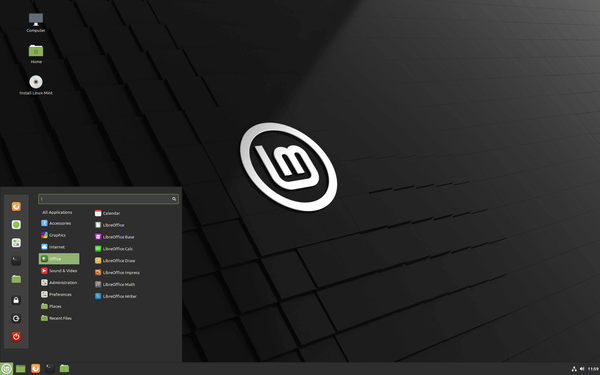
Want to try out the Cinnamon Desktop Environment? Without installing Linux Mint, you can get the desktop packages in Ubuntu via a few commands.
Cinnamon is available in Ubuntu main repositories, though the package version is however a little old. You can simply run the command in step 2 to install it if you don’t stick to the latest features.
The Wasta Linux team maintains an Ubuntu PPA that contains Cinnamon 4.8 packages for Ubuntu 20.04.
1.) Open terminal (Ctrl+Alt+T) and run command to add the Ubuntu PPA:
sudo add-apt-repository ppa:wasta-linux/cinnamon-4-8
2.) After adding the PPA and updating package cache, run command to install the desktop:
sudo apt install cinnamon-desktop-environment
There will be a large list of packages (about 400 MB download) and more disk space usage for installing the DE.
Once installed, log out and select log back with Cinnamon session.
How to Remove Cinnamon Desktop:
If something goes wrong or you just want to remove Cinnamon, paste and run the command below will remove most the components.
sudo apt remove --autoremove blueman brasero brasero-cdrkit cinnamon '~ncinnamon*' cjs desktop-base five-or-more fonts-noto '~nfonts-noto*' fonts-quicksand four-in-a-row gedit-plugins-common gnome-chess gnome-backgrounds gnome-games gnome-klotski gnome-nibbles gnome-robots gnome-taquin gnome-tetravex gnote hexchat-common hitori hoichess hwdata iagno iso-flags-png-320x240 '~nlibcinnamon*' mate-icon-theme mate-themes muffin muffin-common nautilus-extension-brasero nemo nemo-data nemo-fileroller pidgin-data quadrapassel sound-juicer swell-foop tali vinagre wodim xapps-common
And remove the PPA either via Software & Updates under Other Software tab, or run command in terminal:
sudo add-apt-repository --remove ppa:wasta-linux/cinnamon-4-8